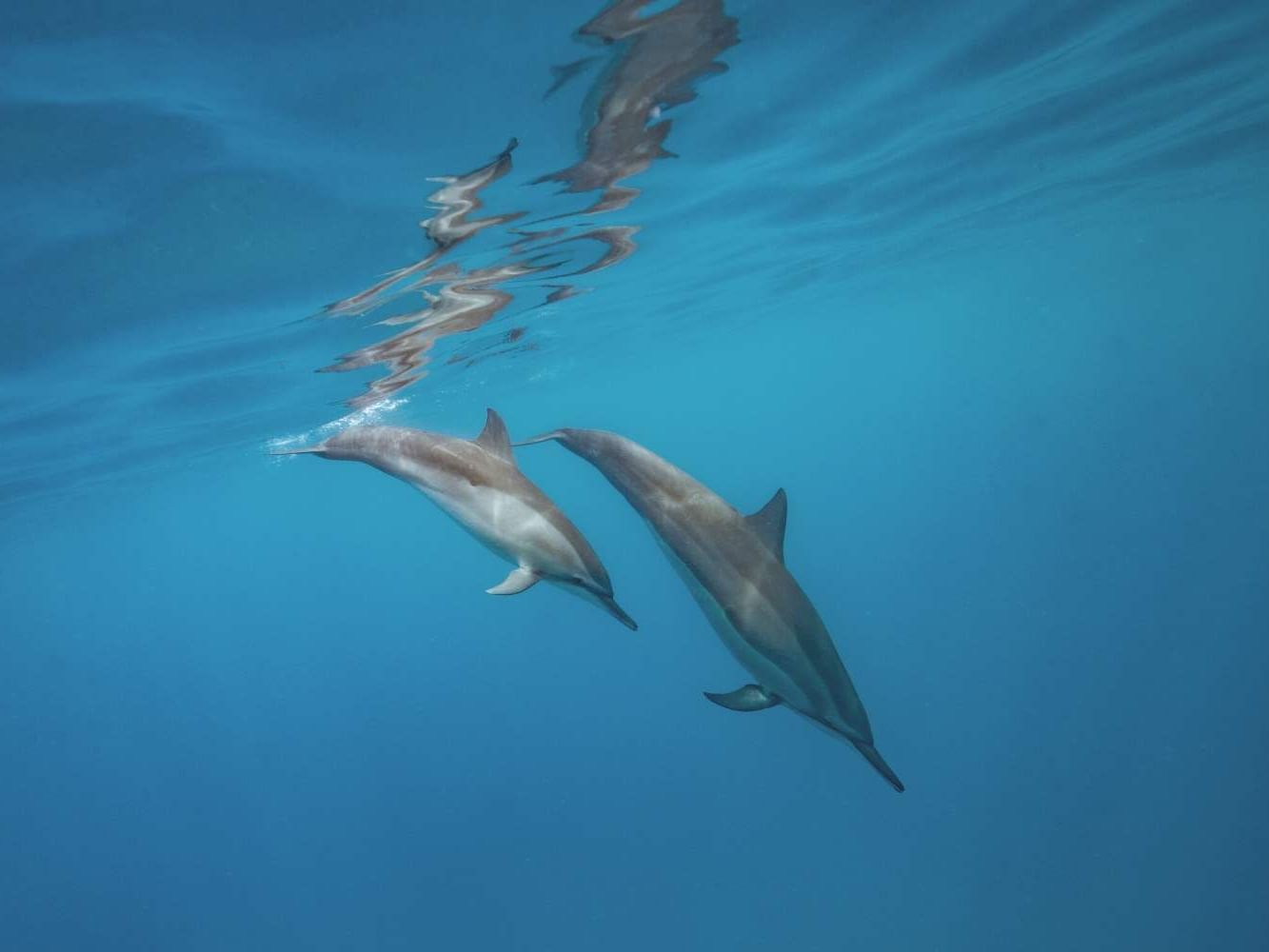Love Dolphins? Here’s Everything You Need to Know about Dolphins in Hawaii
Few things scream "vacation in the tropics" like swimming with a friendly, chirping dolphin. Yet Hawaii's pristine ocean waters and rich, diverse reefs are no all-inclusive Mexican vacation resort. Not only is the Hawaiian island chain home to some unique dolphin species, but there are also stringent rules that govern swimming with dolphins in Hawaii within its sensitive ecosystems. Here's what you need to know about Hawaii dolphin excursions, where to see different types of dolphins in Hawaii, and how to support this endangered species.
What Types of Dolphins Are Found in Hawaii?
While we might envision all dolphins as the same, there are actually dozens and dozens of different kinds of dolphins. In the Aloha State, you'll find:
- Spinner dolphins: These are the most common dolphins you'll come across in the Pacific Ocean surrounding Oahu where they spend much of their night in deep water fishing before returning to Oahu's shallow bays and coasts to rest in the daytime.
- Pantropical spotted dolphins: They're most common on the southwest coasts of all Hawaiian islands, especially in and around Maui and the Big Island of Hawaii. They rarely come close to the shore.
- Coastal bottlenosed dolphins: You've got a higher chance of seeing them around Kauai and Oahu, and less so on the other islands. They're significantly larger than spinner dolphins and pantropical spotted dolphins and tend to swim in smaller groups.
There are also numerous migratory seasonal dolphin species, but the chances of seeing them are a bit rarer.
Where Do Wild Dolphins Live in Hawaii?
Spinner dolphins—the most common type of wild dolphin in Hawaii—are categorized into distinct "stocks" (e.g., families) that do not intermingle. Currently, there are:
- One family that navigates Oahu and Maui
- One family that sticks around the Big Island of Hawaii
- Two families that swim through the northwest Hawaiian islands (approximately 124 miles of smaller islands west of Kauai)
- One family that sticks to the deep sea around Hawaii
Where to See Dolphins in Hawaii: Is Swimming with Dolphins Legal in Oahu?
All dolphin species in Hawaii are very vulnerable, especially due to the huge amount of swimmers, surfers, boaters, and other recreational activities happening in and around the islands.
Take spinner dolphins, for example. While quite common, spinner dolphins are highly vulnerable and if they're disturbed—keep in mind they only come close to the islands when they need to rest during the day—the interactions with tourists and locals can stress them out and endanger them when they head back to the open sea at night.
As of the fall of 2021, it is now illegal to swim with wild dolphins or to closely approach them in their natural habitat. However, you can still legally swim with dolphins on Oahu:
- DolphinQuest: Located just a 15-minute drive from the centrally located Waikiki Resort Hotel, you can swim up close and personal with a family of trained bottlenose dolphins in an ocean-water pool accredited by the Alliance of Marine Mammal Parks & Aquariums, the American Humane Society, and the International Marine Animal Trainers' Association
- Dolphin Excursions Snorkel Adventure: Dolphin sightings are guaranteed on these tours. While you can't snorkel up to the dolphins, you can get in the water as the pod of marine mammals dance through the surf
- Wild Side Specialty Tours: Swim with pods of wild dolphins (keeping in mind that approaching them is illegal) with a tour group that has won recognition from the Hawaii Ecotourism Associations' Sustainable Tourism
Mālama Nai'a: Support the Dolphins in Hawaii
Chasing dolphin pods on a tour—some unscrupulous tour providers still do this, despite the risk and danger posed to these sensitive animals—or approaching them puts everyone at risk. If you want to mālama nai'a (mālama means to "take care of," and nai'a is the Hawaiian name for dolphins), here's what to consider:
- Look for programs or tours with third-party credentials that verify they care for the environment or the humane treatment of dolphins, such as vetting by the International Marine Animal Trainers' Association
- Never feed wild dolphins, interact with them, or try to get close to them in the open seas
- Support tour operators who pledge to support sustainable tourism in Hawaii (even better, look for operators who donate a portion of their proceeds to causes that protect Hawaii's sensitive oceans)
- Always pick up your trash in the water and on the beach, as human litter poses a significant hazard to Hawaiian wildlife
At the centrally located Waikiki Resort Hotel, you're only minutes from opportunities to swim near wild dolphins as well as in verified-humane captive dolphin pools. Book your stay at the Waikiki Resort Hotel online or call us at 1-800-367-5116 to see why our location, friendly staff, convenience, and amenities give us top ratings among our guests all year long.
